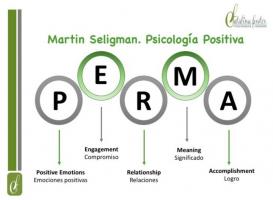Paz Holguín: «In the dependency there is always a hidden fear»
The great social networks developed an extraordinary capacity to provide us with information and constant stimuli; stimuli that, in addition, tend to be offered to us taking into account our characteristics, tastes and interests.
However, this ability to instantly offer us all kinds of content adapted to what we like it goes hand in hand with operating mechanics designed to "get hooked" on the screen. And young people are especially prone to falling into these dependency dynamics on the use of computers, smartphones, tablets ...
Thus, In this interview with the psychologist Paz Holguín we talk about the way in which the qualities of social networks lead us to constantly seek the "rush" of likes and virtual interactions.
- Related article: "How to manage excessive use of social networks in young people and adolescents"
Interview with Paz Holguín: What are the effects of likes on social networks?
Paz Holguín is a psychologist with consultation in Las Rozas de Madrid, where she offers psychotherapy and counseling for parents based on cognitive-behavioral and systemic models (although she also attends online). In this interview, she talks about the influence of the mechanics of social networks on the minds of young people who use platforms such as Instagram, Facebook, TikTok ...
What aspects of the design and mechanics of the most used social networks give them that ability to "hook us"?
The human being is social by nature, he needs others for his survival. Therefore, the feeling of belonging, of connection to a social system, is one of their greatest motivations. Social networks have been and are designed with this purpose of connectivity between us, and from from there they develop all the necessary mechanisms to create and supply this need in a virtual.
The use of the image as quick information, the possibility of sending and receiving audios and being connected as long as we want, to meet people from all over the world, the notifications, the likes, the algorithms created to show only the content that may interest you and discard the one that no... These are some of the mechanisms that networks feed on to keep us hooked on them.
What is the real objective of social networks giving the possibility of giving a "like" to certain content?
As I have commented before, belonging to the community and the group is a necessity for us, but it is difficult to feel part of a group or a community if other members do not show their acceptance towards us.
And this is where one of the important points in the design of social networks lies; A like is an interaction mechanism, and the interaction that we generate with other users is perceived as a level of acceptance by the community. If I feel very accepted, if I have many likes or comments, I will continue to perform those behaviors that generate acceptance.
On a neurobiological level, are the effects of receiving likes comparable to the effects that taking certain drugs has on the brain?
Well, this is difficult to answer because really, there is still no research to support this comparison but there seem to be indications that it is. We know that by consuming drugs increases the release of dopamine, a hormone involved in the sensations of pleasure and that is also released by the appearance of likes both in our publications and when we like a publication of another person. Both also activate the nucleus accumbens, which works as a reward system.
Basically, what we experience are instantaneous moments of pleasure, not happiness, each time we receive a like.
The problem with the functioning of this structure is that the continued consumption of these pleasant experiences leads the person to end up getting used to what they give him, and to get to those little moments of pleasure he is going to need more of that pleasant stimulus. So if we have 20 likes in a publication, our little moment is going to need 21, 22, 23 likes... in the next few posts to appear so strongly.
In addition, it seems that both are also related to some difficulties in the processes of attention and concentration.
When people value the amount of likes their posts, photos and videos receive, do they tend to compare themselves with the rest of the people in their environment, or with the most popular people?
Comparing oneself with other people is a common mechanism for evaluating the social acceptance that happens in us every day. According to the Social Comparison Theory of Festinger, the natural tendency is to compare ourselves with our equals, although there is also an ascending and descending comparison, that is, we we compare with people we think are better positioned in a particular field and with those we consider less successful in that field ambit. So we can assume that this behavior also occurs in social networks.
The algorithms of many of the social networks provoke and facilitate this upward comparison, since they show us those publications that generate more likes and more interactions with users. In any case, there are many factors that intervene in the processes of social comparison within social networks: the age of the user, the purpose for which they use the RRSS, the type of social network used, and of course personal factors of the user himself as their self esteem, your support network, your mood, etc.
How is the search for approval on social media related to what has been called FOMO, that is, “fear of missing out”?
The FOMO phenomenon is, in part, a consequence of approval seeking. Basically this phenomenon is described as the fear of missing something of what happens.
As in the networks the bombardment of events is inexhaustible, if I am not connected I feel that I am missing something, and if I lose something I am not up to date with society and therefore I miss opportunities to socialize and find the approval of the group.
On the other hand, being connected continuously increases the situations in which we are exposed to comparison social upward movement that I have mentioned before and can make us feel that our life is boring or vulgar, for example.
What can be done from Psychology to help people who depend too much on social networks?
On the individual level, in dependence there is always a hidden fear; fear in these cases is usually related to not connecting with others and being or feeling socially isolated. So the work usually starts there.
At the level of society, I believe that psychologists have a fundamental role in the dissemination of the harmful psychological effects derived from the misuse of the networks social as well as education in its correct use and it is important that we emphasize education not only computer science but also emotional education of the networks.


